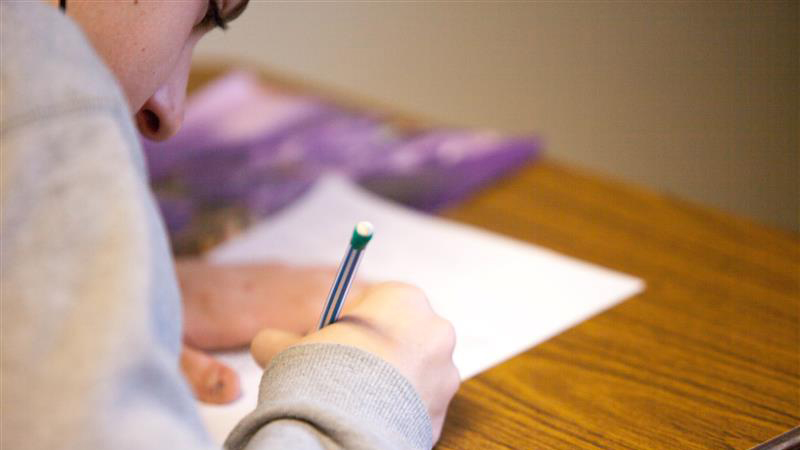Contract cheating is a national and global problem in higher education. UVU's Pauli Alin recently published his research and detection method in the International Journal for Educational Integrity.

In recent years, celebrities, prominent businessmen, and wealthy families were caught buying their children’s way into Ivy League colleges and big-name schools. The college admissions scandal, as it became known, caused legal action to be taken against those involved. It also caused outrage across the nation and prompted higher education institutions to take a closer look at cheating — how to identify it and ideally eradicate it from higher education.
Although not a legally actionable offense, one of the most common and difficult types of cheating to prove is contract cheating. Contract cheating refers to students purchasing assignments from the internet for a fee. Several online businesses will hire someone to complete an assignment. Because each assignment is personalized, the student is able to pass anti-plagiarism tests, which means it’s very hard to prove they are cheating.
Dr. Pauli Alin, an assistant professor in Utah Valley University’s Technology Management program, became suspicious of this type of cheating when he observed that some students performed better in homework assignments submitted online than they did in class.
“Maybe someone else did the assignments, and the students submitted them as their own,” Alin said. “I didn’t first know that there’s a name for this — contract cheating — or that it’s a big phenomenon, a global problem, really.”
Based on his initial suspicions, Alin began researching ways in which his students may be cheating while still passing standard anti-plagiarism checks using existing software such as Turnitin or Unicheck.
Alin soon discovered contract cheating and learned that students were able to pass plagiarism tests because it isn’t the standard “copy and paste” type of cheating. Even if the instructor suspects a student may be contract cheating, there is currently not a lot they can do about it.
“Instructors can — and often do — suspect that some kind of cheating may be going on, but as long as plagiarism detection tools don’t detect it, there’s not much an instructor can do,” Alin said.
But he was determined to find a solution to this underlying form of cheating and began researching different methods of detection. Although challenging to prove contract cheating is happening, he drew inspiration from doping tests used in professional sports.
By comparing samples of the students’ work, Alin can identify anomalies and collect evidence of cheating. If he suspects a student may be cheating, Alin compares a sample of the student’s work from class to the homework assignments submitted online. If there are observable differences, this serves as preliminary evidence, according to Alin, and he has grounds to continue his sampling further.
Next, he invites the student to replicate the online homework assignment in about 10 minutes. He doesn’t expect the student to repeat it word for word, but he checks to make sure the student is able to capture the content, tone, and standard of the work previously submitted.
If the student isn’t able to produce an acceptable sample, the professor reports the incident to the university’s Academic Dishonesty Office. At UVU, these cases are handled by Student Conduct Services. By involving Student Conduct, students still have the right to dispute the claim.
To test this method, Alin began using it in his classes whenever he suspected cheating by one of his students. He found his method to be very successful in identifying and proving contract cheating.
“The students who cheated almost always confess on the spot,” he said. “No arguing, no back and forth. If they cannot reproduce a word of an assignment they submitted not long ago, it is practically impossible for them to argue that they wrote the assignment themselves.”
Contract cheating is not unique to UVU — it’s a national and global problem in higher education. Alin recently published his research and detection method in the International Journal for Educational Integrity. He says that the success of his method could be applied to a number of courses and would give faculty more ground to pursue cheating in classes — leaving them more time for teaching and working with students.
“It’s simple and straightforward to catch contract cheaters,” Alin said. “I don’t have to spend any time thinking about it or stressing about it. This allows me to focus my energy on actual instruction.”